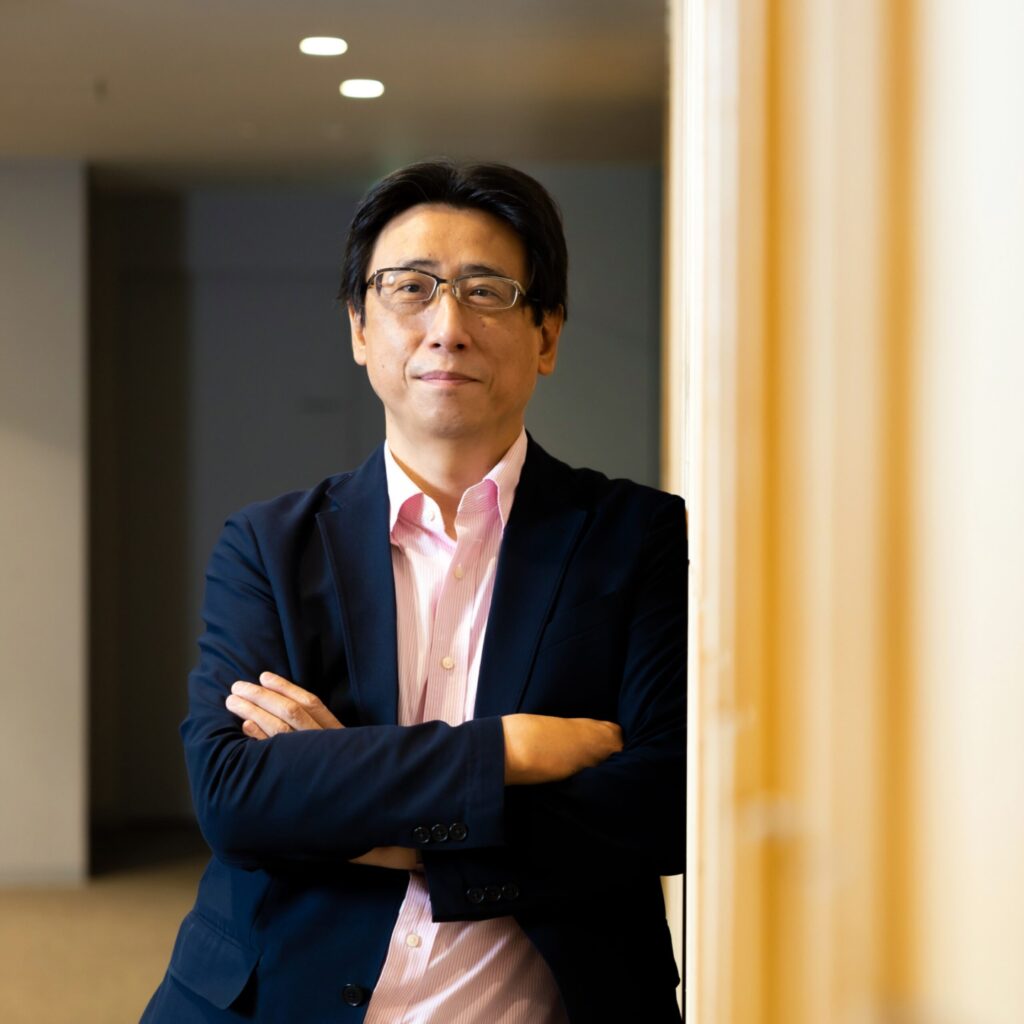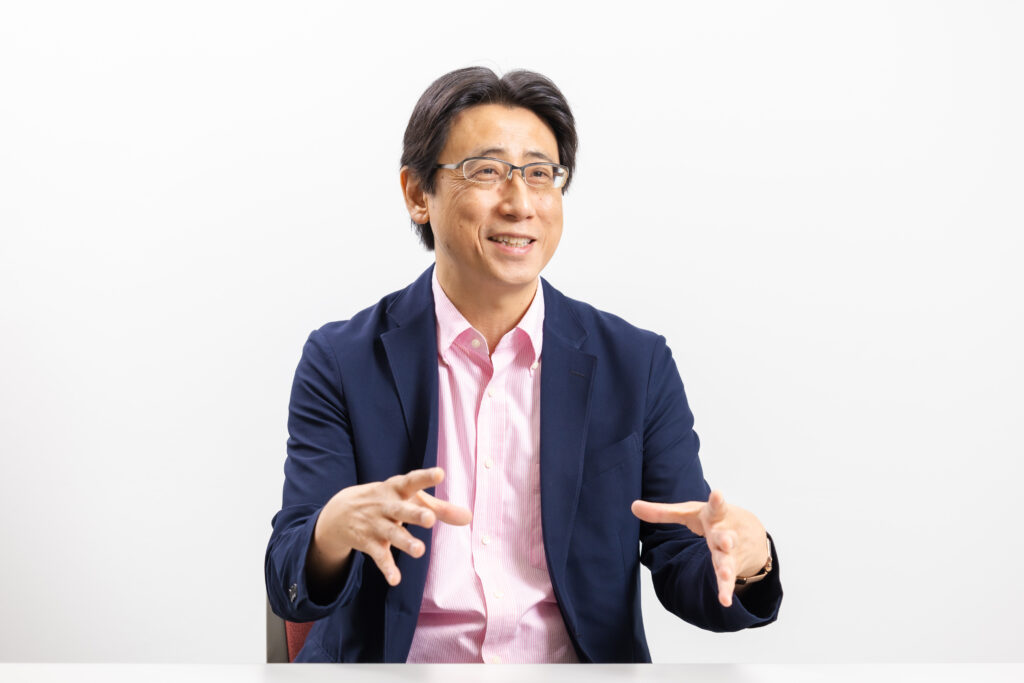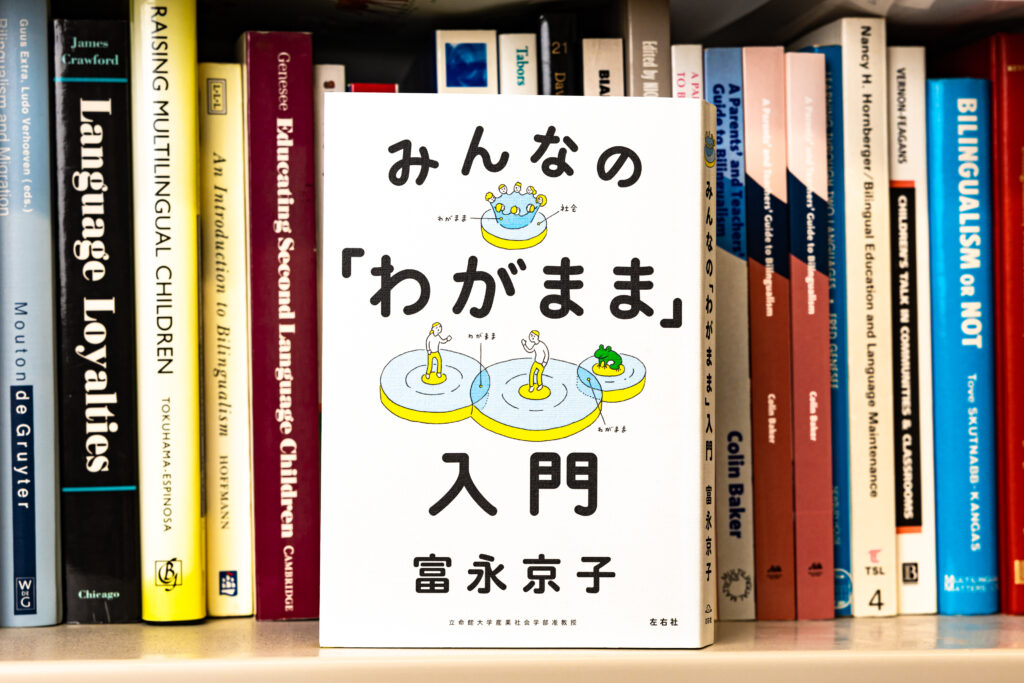
In addition to regular courses, Sophia University’s Center for Language Education and Research organizes a range of programs structured in the best possible way for learning foreign languages. Center Director and Professor Tamotsu Fujita is shifting away from the “frog in a well” concept, focusing more on cultivating collaborative skills for interacting with the global community.
The Center for Language Education and Research covers all aspects of language education at Sophia University, and provides foreign language training to a broad range of students, not limited to those enrolled in undergraduate courses or subjects.
A key point to note of the Center is that it handles 22 different languages—including Arabic and Indonesian in addition to English, French and German—and also provides Japanese language training for international exchange students.
The “Language Learning Commons (LLC)” is one facility of the Center that provides various programs and services for enriching foreign language education. It offers a diverse scope of foreign language communication programs including small conversational tutoring groups comprising postgraduate students and exchange students.
LLC covers almost every angle of language and communication, including facilitating language exchange where students from different backgrounds get together and discuss their own languages and cultures, and running courses for language proficiency tests.
Learning advisors are on hand to provide tips for writing reports or papers in English, as well as making preparations for studying overseas. While classes may only offer limited opportunities for each student to hone their speaking skills, LLC provides all the services required for students seeking to extend their language skills as far as possible.
Skills required for getting along with people from around the world

English education currently focuses on cultivating communication skills—the essence of this approach is finding a topic of interest, and identifying the best way to express oneself in order to accurately convey the key points.
Yet memorizing a million terms becomes meaningless if one is unable to draw on them whenever the conversation calls upon those terms. Instead of speaking non-stop, it is vital to listen carefully to the person you are talking with to enrich communications.
Machine translation has made leaps and bounds in quality in recent years, but there is still the need to study languages. Meanings implied between the lines or with unspoken nuances cannot be conveyed simply by replacing words with words. Efforts need to be made to understand languages, as well as the cultures associated with them—it is vital to acquire comprehension skills and learn all the subtle nuances.
Language is an indispensable tool for creating better societies. With the internet reaching so far today, we must move away from the idea of the “frog in a well” and come face to face with the global society. The key is to determine how innovatively we can work with people around the world. To acquire strong collaborative skills required going forward, it would be great to have people studying practical language skills.
Discovering yourself is the key to studying languages
My initial field of research was that of language acquisition: “How exactly do people acquire the ability to use language?” I studied the processes behind the acquisition of languages, from after people are born and while they are growing up. One of my field work projects covered children who are considered bilingual or multilingual—I studied the way children in Brazilian communities of Japanese descent learned to speak both Japanese and the language of their parents.
In doing so, I gradually began to see what the most effective method of learning is. One thing I noticed from my studies of both language acquisition and language education is that learning languages is related to one’s own identity. This is all the more important these days as we live in a truly global society.
Conversing with people who have different values can lead to a fresh perspective you may have never thought of. I am positive that people will be able to discover their own identity after experiencing a multitude of different languages and cultures.
The book I recommend
“Mina no ‘Wagamama’ Nyumon”(Introduction to ‘Selfishness’ for Everyone)
by Kyoko Tominaga, Sayusha

Selfishness tends to be viewed as a bad trait. Yet, by standing up against the unreasonable rule of wearing a school uniform, this book shows how one person’s “selfishness” can bring positive results for everyone. The book outlines the importance of expressing how you feel.
-
Tamotsu Fujita
- Professor & Director
Center for Language Education and Research
- Professor & Director
-
Graduated from the Department of Comparative Culture, Faculty of Foreign Studies, Sophia University, and received his M.A. at Sophia’s Graduate Program in Linguistics. He was Assistant professor of the Faculty of Economics at Takasaki City University of Economics, and Professor of the College of Intercultural Communication, Rikkyo University, before he assumed his current position.
- Center for Language Education and Research
Interviewed: May 2022